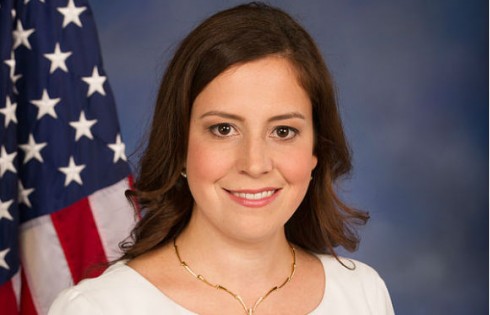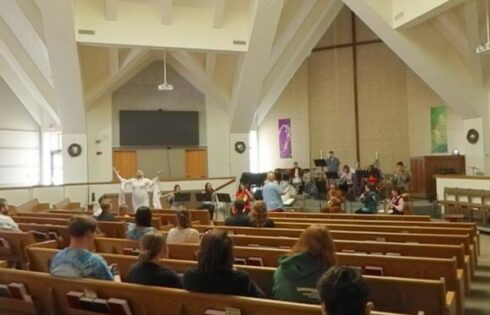
Quantity of incidents makes institute scramble to keep up
Much of the world underestimates the level of anti-Semitism that Jews face, according to Indiana University-Bloomington researchers.
Some people are surprised when informed of the research by the public university’s Institute for the Study of Contemporary Antisemitism. Others respond with vitriol.
The institute’s Gunther Jikeli told The College Fix that he and his colleague, Professor Alvin Rosenfeld, received “nasty” and hateful comments after Jikeli was quoted in a recent New York Times article on the “New anti-Semitism” in France. Le Monde also published his op-ed about anti-Semitism in Muslim populations.
Jikeli’s appearances in the media are part of his work at the institute, created in 2009 as part of the university’s Jewish Studies Program. It analyzes anti-Semitic acts and sentiment in the recent past across a variety of platforms and from a variety of sources, including the alt-right and others.
“Anti-Semitism is growing again and we need to understand it better in order to fight it effectively,” Jikeli wrote in an email.
Origins of the Institute and Current Work
The “big increase in anti-Semitic words and deeds almost on a global basis” after the September 11 terrorists attacks surprised anti-Semitism researchers, Rosenfeld told The Fix, explaining the institute’s founding.
“That was not expected by most of us,” he said in a phone interview: After the Holocaust, there was hope that anti-Semitism would become a thing of the past.
Instead, the quantity of anti-Semitic incidents means that it’s a “matter of hustling to keep up with incidents,” Rosenfeld said.
The institute offers a number of academic courses as well, with past ones including “Antisemitism after the Holocaust Today,” “Literature of the Holocaust” and “Muslim-Jewish Relations in the 20th Century.”
The third class is an especially important one, Rosenfeld said: It traces the long history of Jewish-Muslim relations back to the time of the prophet Muhammed. The history has had ups and downs.
“We’re living in a time now that Jewish-Muslim relations are very strained,” he said, pointing to the Times article on France, which is home to Europe’s largest Jewish and Muslim populations. “The emphasis is on the 20th century, but it traces the history back to its beginnings.”
The Institute also held a conference in 2017 that focused on anti-Semitism among refugees, an issue for which Rosenfeld said he was able to travel internationally to speak face-to-face with refugees from Syria and Iraq.
‘Making people aware of the growing impact of anti-Semitism’
Rose Guingrich, Rosenfeld’s teaching and research assistant, told The Fix that “fellow students” have responded to her research with “intrigue and a bit of surprise.”
“Their reactions have nothing to do with my work,” she wrote in an email, “but rather have to do with their previous perceptions of the prevalence of antisemitism across the world, which they had underestimated.”
She explained that thanks to her position in the institute, her friends have come to realize the magnitude of anti-Semitism, which is the beginning of the institute’s work.
“It goes beyond the scholarly realm to that of the general public, making people aware of the growing impact of antisemitism in the world today,” Guingrich wrote.
The external reactions to Jikeli’s quotes in the Times piece are something of an outlier, Rosenfeld said. Colleagues and students have responded positively and the university has been fully supportive of the endeavor: “No one has accused us of politicizing the issue.”
Jikeli has big plans for the institute’s future.
“There is no university based institute here in the U.S. that has the capacity to research the dynamics of antisemitism and its trends in such a comprehensive way that effective strategies could be developed to counter it,” he wrote. “We mostly describe events of the (recent) past but we don’t understand the dynamics of it. I would like to change that.”
“Only when people know the issue can people begin to rally toward solving the issue,” Guingrich wrote. “This is one of the significant, positive consequences of this institute’s existence.”
MORE: Outrage at Stanford after student leader threatens to physically fight Zionists
MORE: Jewish students say they must vocally oppose Israel or be marginalized.
IMAGE: Anton Shahrai / Shutterstock
Like The College Fix on Facebook / Follow us on Twitter





Please join the conversation about our stories on Facebook, Twitter, Instagram, Reddit, MeWe, Rumble, Gab, Minds and Gettr.